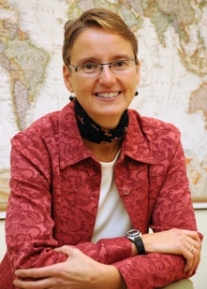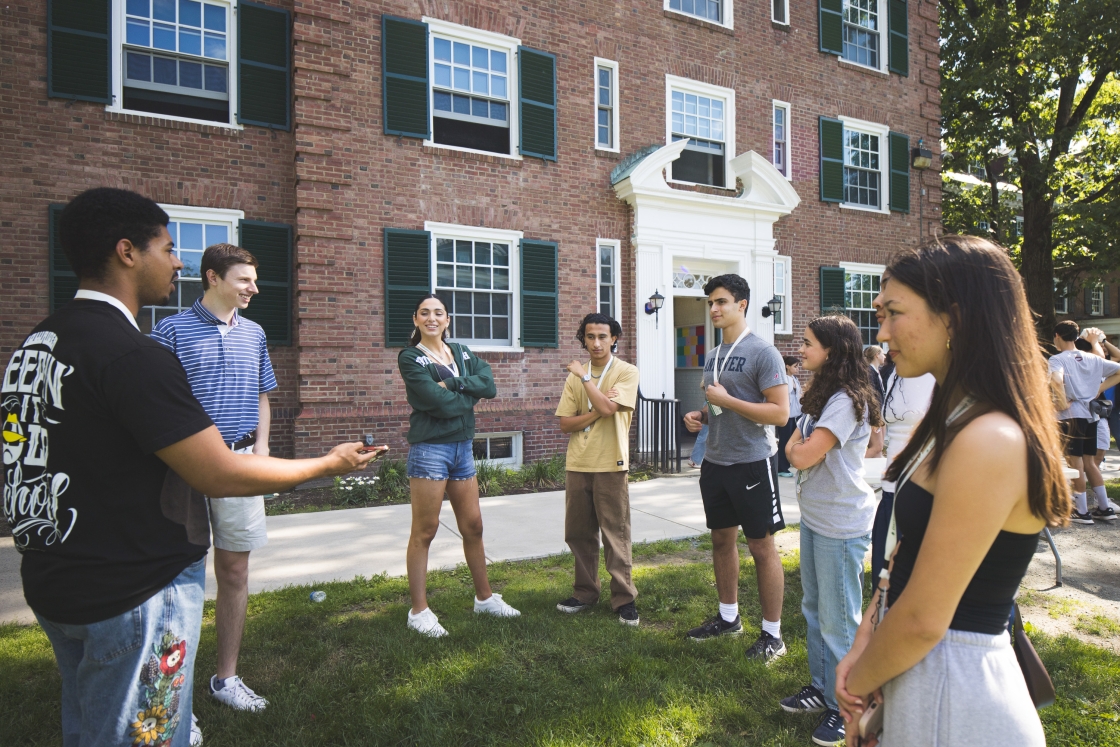As health officials worldwide are monitoring the novel coronavirus, so, too, are physicians and others at Dartmouth.
Dartmouth News spoke this week with Lisa V. Adams, a physician and an expert in global health, about the outbreak, which on Thursday the World Health Organization declared to be a global health emergency. On Friday, the United States declared the virus a public health emergency and announced that temporary travel restrictions would be put in place on Sunday at 5 p.m.
“It’s important to note that, to date, there have been no confirmed cases of this illness at Dartmouth or statewide. We are watching the movement of this virus from a distance while staying closely connected to updates and recommendations from the federal Centers for Disease Control and Prevention (CDC) and the WHO,” says Adams, the associate dean for global health and an associate professor of medicine in the Section of Infectious Disease and International Health at the Geisel School of Medicine.
Dartmouth has a team that meets as an emergency-planning group in cases such as the coronavirus outbreak. Representatives from a number of offices, depending on the situation, take part in the meetings. The current group includes people from the offices of the president and provost, safety and security, communications, and offices that deal with foreign travel, programs, and visitors. Mark Reed, the physician who directs the Dartmouth College Health Services, leads the group.
Adams answered questions about the coronavirus outbreak and Dartmouth’s response. Her answers draw on material from a number of sources, most prominently the CDC.

First of all, what is coronavirus and where did it come from?
Coronaviruses are a family of viruses, some of which cause illness in people, and others of which circulate among animals. The Severe Acute Respiratory Syndrome (SARS) outbreak in 2003 was a type of coronavirus, as was Middle East Respiratory Syndrome (MERS) in 2013. The current virus is referred to as novel coronavirus (2019-nCoV) because it is a type of coronavirus that had not been previously identified. See the CDC for more information on the source and spread of coronaviruses.
The 2019-nCoV was first identified in December in Wuhan, Hubei Province, China. Early on, many of the patients in the outbreak in Wuhan reportedly had some link to a large seafood and animal market, suggesting animal-to-person spread. However, a growing number of patients reportedly have not had exposure to animal markets, indicating person-to-person spread is occurring.
How is the virus spread?
Some viruses, such as measles, are highly contagious. Others, less so. At this time, it’s unclear how easily this virus is spreading between people. Based on current information, the CDC considers this is a very serious public health threat. However, the immediate health risk from 2019-nCoV to the general American public is considered low at this time. Here’s more from the CDC on the spread of newly emerged coronaviruses.
Because this virus is so new, scientists are still learning the basics about it—how it acts and spreads, and how severe it is. Most respiratory illnesses are spread when an infected person has symptoms, such as coughing or sneezing. A national health official I greatly respect, Dr. Anthony Fauci, director of the National Institutes of Health’s National Institute of Allergy and Infectious Diseases, recently told NBC News, “The driver of outbreaks is always a symptomatic person. Even if there is some asymptomatic transmission, in all the history of respiratory-borne viruses of any type, asymptomatic transmission has never been the driver of outbreaks.”
What are the symptoms of this virus?
Confirmed cases of the illnesses have ranged from people being mildly sick to people being severely ill and dying. Symptoms can include fever, cough, and shortness of breath. The CDC believes at this time that symptoms may appear in as few as two days or up to 14 after exposure.
It’s important to remember that we are in the midst of cold and flu season. If you have not been in China, it is unlikely that you have been infected with 2019-nCoV. By comparison, influenza can be a serious illness. The CDC estimates that since 2010, each year between 9 million and 45 million have the illness and between 12,000 and 61,000 deaths are attributed to the flu.
What precautions should I take to guard against coronavirus?
There is no vaccine to prevent 2019-nCoV infection. The CDC recommends everyday actions to help prevent the spread of any type of respiratory virus, including washing your hands often with soap and water for at least 20 seconds; using an alcohol-based hand sanitizer that contains at least 60% alcohol if soap and water are not available; avoiding touching your eyes, nose, and mouth with unwashed hands; avoiding close contact with people who are sick; and staying home when you are sick. Cover your cough or sneeze with a tissue, then throw the tissue in the trash. Clean and disinfect frequently touched objects and surfaces.
What should I do if I think I’m sick?
If you were in China in the past 14 days and feel sick with fever, cough, or difficulty breathing, the CDC recommends seeking medical care right away. Dartmouth students should contact Dick’s House, at 603-646-9400 and faculty and staff should contact their primary care provider. Before going to a health care appointment, call ahead and tell them about your recent travel and your symptoms. Also, avoid contact with others. Don’t travel while sick. Follow the hygiene precautions listed in the previous question.
What precautions is Dartmouth taking to guard against coronavirus?
Consistent with CDC recommendations, the Dartmouth College Health Service and Dartmouth-Hitchcock Medical Center are screening those seeking care for cough and fever and asking about recent travel to affected areas. The CDC and U.S. Customs and Border Protection have implemented enhanced health screenings at ports of entry for travelers from China arriving in the U.S.
What if I am planning to travel to China in the near future?
The U.S. Department of State has elevated its China travel advisory to a “Do Not Travel” level for all of mainland China. In accordance with this advisory, Dartmouth-sponsored travel to China is prohibited at this time. China is now included on Dartmouth’s list of countries for which a travel waiver is required. See the Global Dartmouth website for the most up-to-date information on travel restrictions.
What should I do if I am returning to campus from China, or sponsoring a visitor coming from China?
This is a rapidly evolving situation, and policy and guidance are still being set. Currently, neither the New Hampshire Department of Health and Human Services nor the CDC is currently recommending self-isolation of people arriving from China if they do not have any respiratory symptoms.
Consistent with current CDC guidance, those visiting or returning to campus from China should monitor themselves for development of respiratory symptoms. If they develop symptoms within 14 days of leaving China, they should avoid contact with others, and be in touch with their health care provider, as described above, to discuss their symptoms and their recent travel. It is important to stress that there are currently no recommendations for people without symptoms to be isolated or to restrict their activities. They just need to be aware and watch for the development of any symptoms.
Is there anything we can do to accommodate those who may have difficulty traveling to campus from China?
Dartmouth offices should accommodate requests to change in-person interviews to remote interviews if asked by applicants from China seeking Dartmouth positions or entry to schools or programs. The candidates should be reassured that a distance interview will not negatively affect their application.
How is Dartmouth supporting community members who may be affected by the coronavirus outbreak?
We recognize that students, faculty, staff, and members of their families may be affected by this outbreak. We urge anyone who would like to speak to a counselor on their own behalf or out of concern for someone else to contact our available resources: the Faculty/Employee Assistance Program, the Office of Counseling and Human Development, the College chaplain’s office, or the undergraduate dean on call. Assistance is available 24 hours a day, every day. For help, call Safety and Security at 603-646-4000.
Susan J. Boutwell can be reached at susan.j.boutwell@dartmouth.edu


